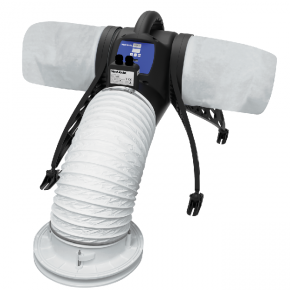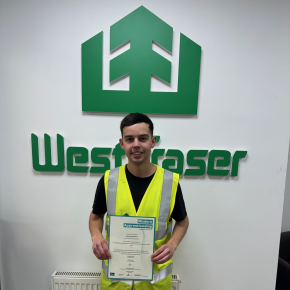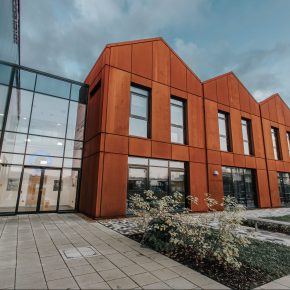
Seven ways smart sensors can improve concrete construction
In the bustling world of construction, time is a resource as precious as any material. Every second saved in assessing concrete strength and curing can mean earlier project completion, enhanced safety, and substantial cost savings.
Enter the age of smart construction, where the integration of technology with traditional building methods is not just a trend, but a fundamental shift towards efficiency and precision. Converge’s suite of smart sensors and solutions exemplifies this shift, offering groundbreaking ways to monitor and manage concrete construction in real-time.
Quality and sustainability
These innovations aren’t just about speed; they’re about building a future where every element of construction is optimised for quality and sustainability. The smart sensor technology brings to the fore the ability to make informed decisions quickly, ensuring that projects are not only completed faster but also built to last.

As the construction industry grapples with the demands of modern infrastructure and the need for environmental stewardship, smart sensors, and AI-powered analytics pave the way for a more resilient and responsible approach to construction.
1. Real-Time Strength and Temperature Monitoring
Converge’s sensors provide real-time data on the concrete’s temperature and strength. This continuous monitoring is crucial for determining when concrete has reached the necessary strength for further construction processes, which leads to better scheduling and reduced downtime.
2. Enhanced Accuracy
The data from the sensors offer reliable information regarding the concrete’s in-situ temperature and maturity level, which is essential for structural integrity. This accuracy helps to avoid potential errors and costly rework.
3. Time Efficiency
By enabling continuous monitoring, the sensor solutions save significant time compared to traditional testing methods that provide results at set intervals. This efficiency can lead to faster construction cycles.
4. Cost Effectiveness
Accurate data from sensors can lead to significant cost savings by reducing errors and the need for rework. Moreover, predictive analytics facilitated by sensor data can prevent cost overruns by enabling better planning and proactive management of the concrete curing process.

5. Advanced Capabilities and Predictive Analytics
Smart sensors have the ability to measure at multiple depths within a concrete pour, providing a detailed thermal profile to avoid issues like cracking. The sensor data, combined with predictive analytics, allows for proactive management of the curing process and reduces the likelihood of delays.
6. Sustainability
This AI technology promotes sustainable construction practices by minimising the overuse of materials and enabling less destructive testing methods. By optimising future mixtures, the use of cement can be reduced, making the concrete production process more efficient and environmentally friendly.
7. Safety and Integration with AI
The integration of sensors with AI and machine learning technologies can enhance safety measures by providing more accurate data on slab strength and load-bearing potential. The expectation is that integration will lead to more sophisticated analyses and improved construction processes.
The advancements in sensor technology represent a significant shift in concrete construction, enabling projects to be completed faster, with higher quality, and in a more cost-effective and sustainable manner. These benefits demonstrate how integrating smart technology into construction processes can lead to substantial improvements across the industry.
Latest news

13th March 2025
Vent-Axia Publishes Free eBook to Help Social Housing Landlords Navigate Awaab’s Law
Leading British ventilation manufacturer Vent-Axia has published a free eBook, ‘Ensuring Safe Housing Conditions: Focusing on Mould and Damp Conditions’.
Posted in Air Conditioning, Articles, Building Industry News, Building Products & Structures, Building Regulations & Accreditations, Building Services, Damp & Waterproofing, Facility Management & Building Services, Health & Safety, Heating, Ventilation and Air Conditioning - HVAC, Innovations & New Products, Publications, Research & Materials Testing, Retrofit & Renovation
13th March 2025
First Processing Industries apprenticeship completed within West Fraser
West Fraser is pleased to announce that the company’s continued investment in apprenticeships, as well as wider staff development training, has seen one recruit successfully complete his modern apprenticeship.
Posted in Articles, Building Industry Events, Building Industry News, Building Products & Structures, Building Regulations & Accreditations, Building Systems, Recruitment, Restoration & Refurbishment, Retrofit & Renovation, Timber Buildings and Timber Products, Training, Walls, Wooden products
11th March 2025
ADSA’s 40 Years of Innovation
The Automatic Door Suppliers Association (ADSA) is kicking off its 40th anniversary with the launch of an animated timeline that showcases its incredible journey and industry-defining achievements.
Posted in Access Control & Door Entry Systems, Architectural Ironmongery, Articles, Building Associations & Institutes, Building Industry Events, Building Industry News, Building Products & Structures, Building Services, Doors, Facility Management & Building Services, Health & Safety, Innovations & New Products, Recruitment, Retrofit & Renovation, Security and Fire Protection, Training, Videos
11th March 2025
Senior answers the call at Merseyside’s new state-of-the-art fire station
Safe, secure, and sustainable aluminium fenestration solutions from Senior Architectural Systems have been installed at Merseyside Fire & Rescue Service’s brand-new fire station in Aintree.
Posted in Aluminium Products, Articles, Building Industry News, Building Products & Structures, Building Systems, Case Studies, Curtain Walling, Doors, Facades, Glass, Glazing, Restoration & Refurbishment, Retrofit & Renovation, Sustainability & Energy Efficiency, Walls, Windows
 Sign up:
Sign up: